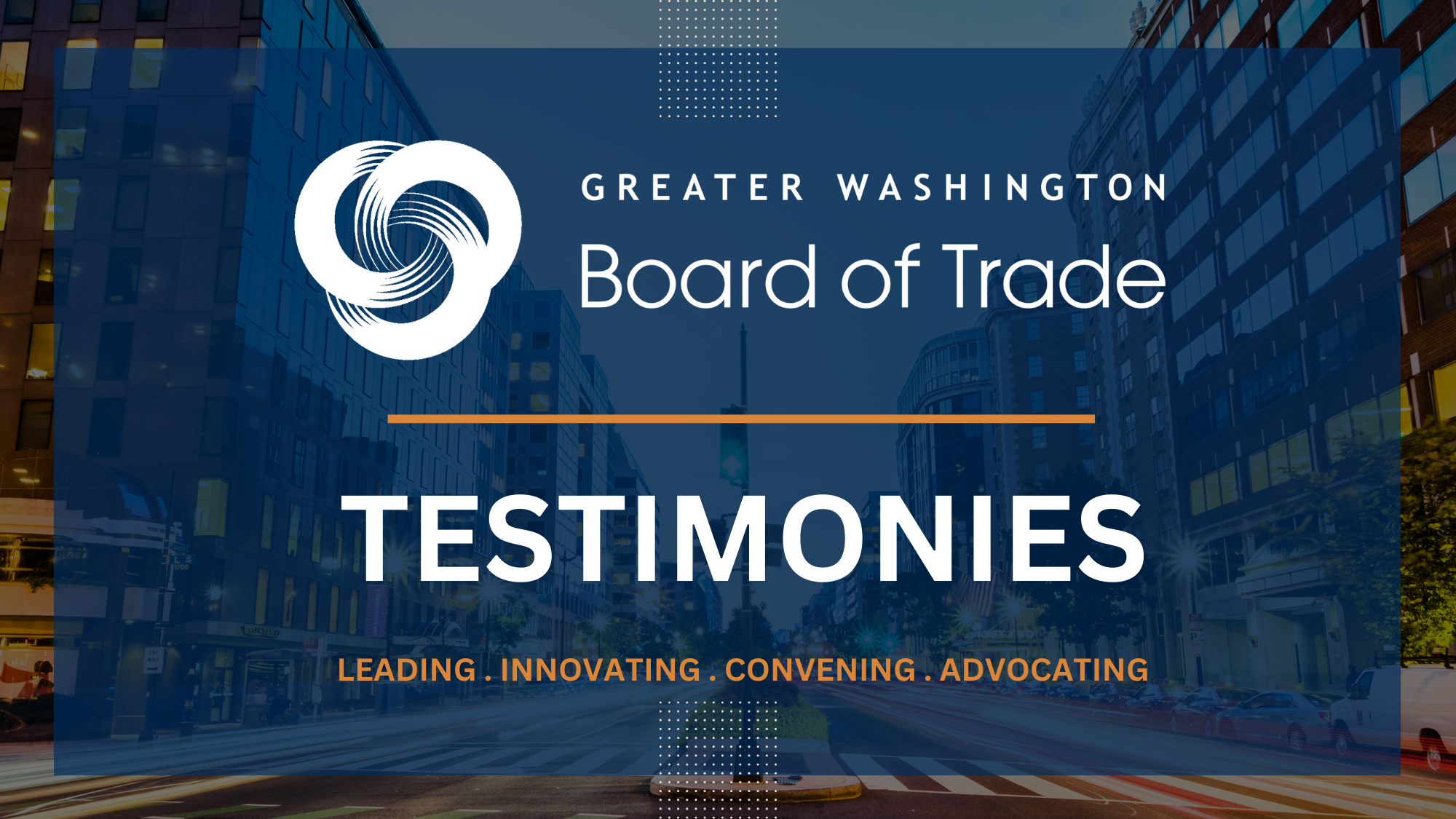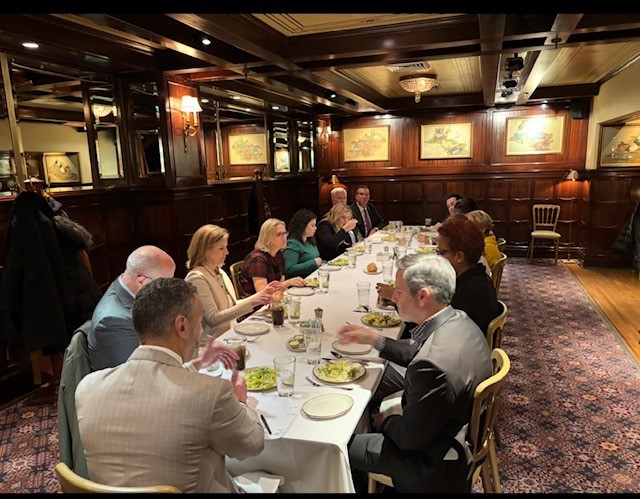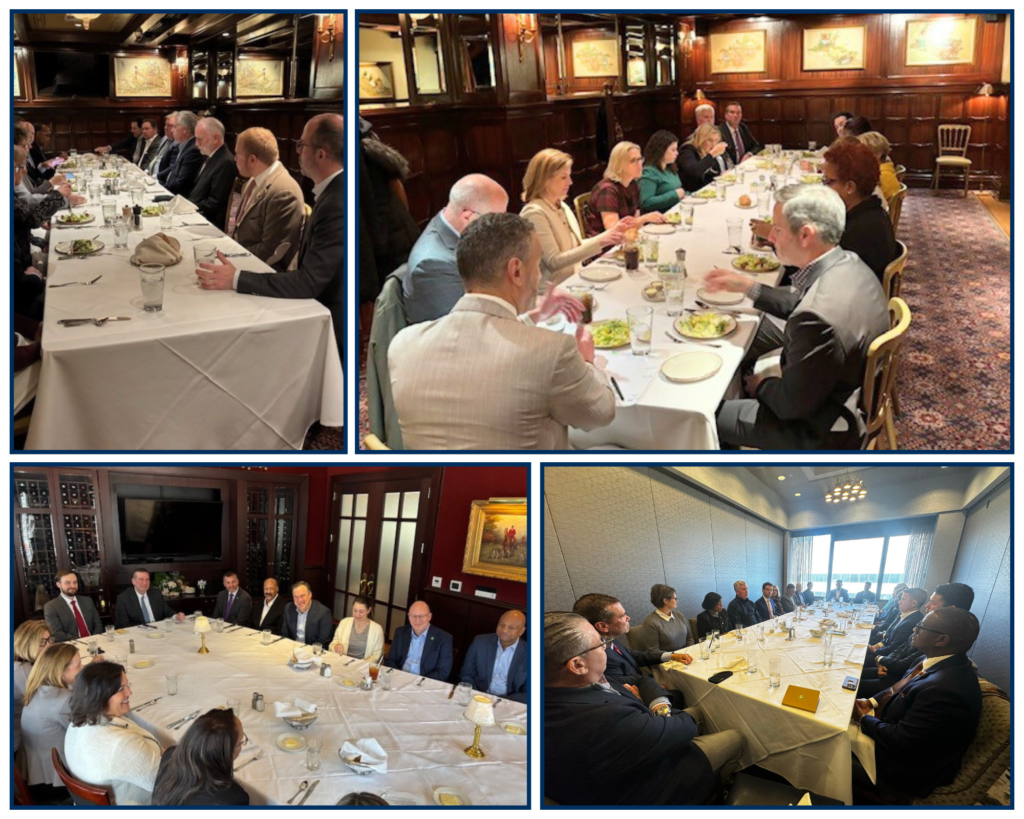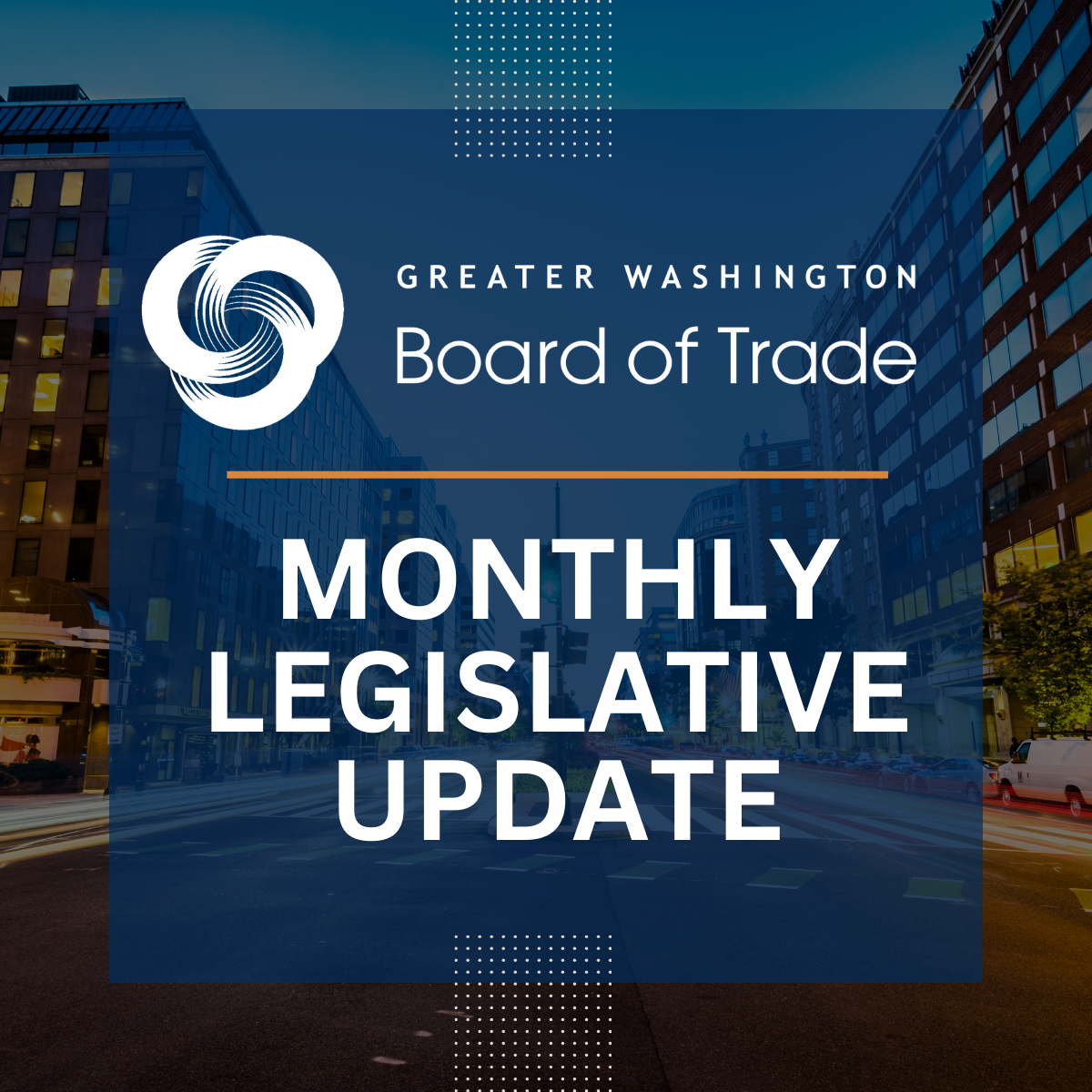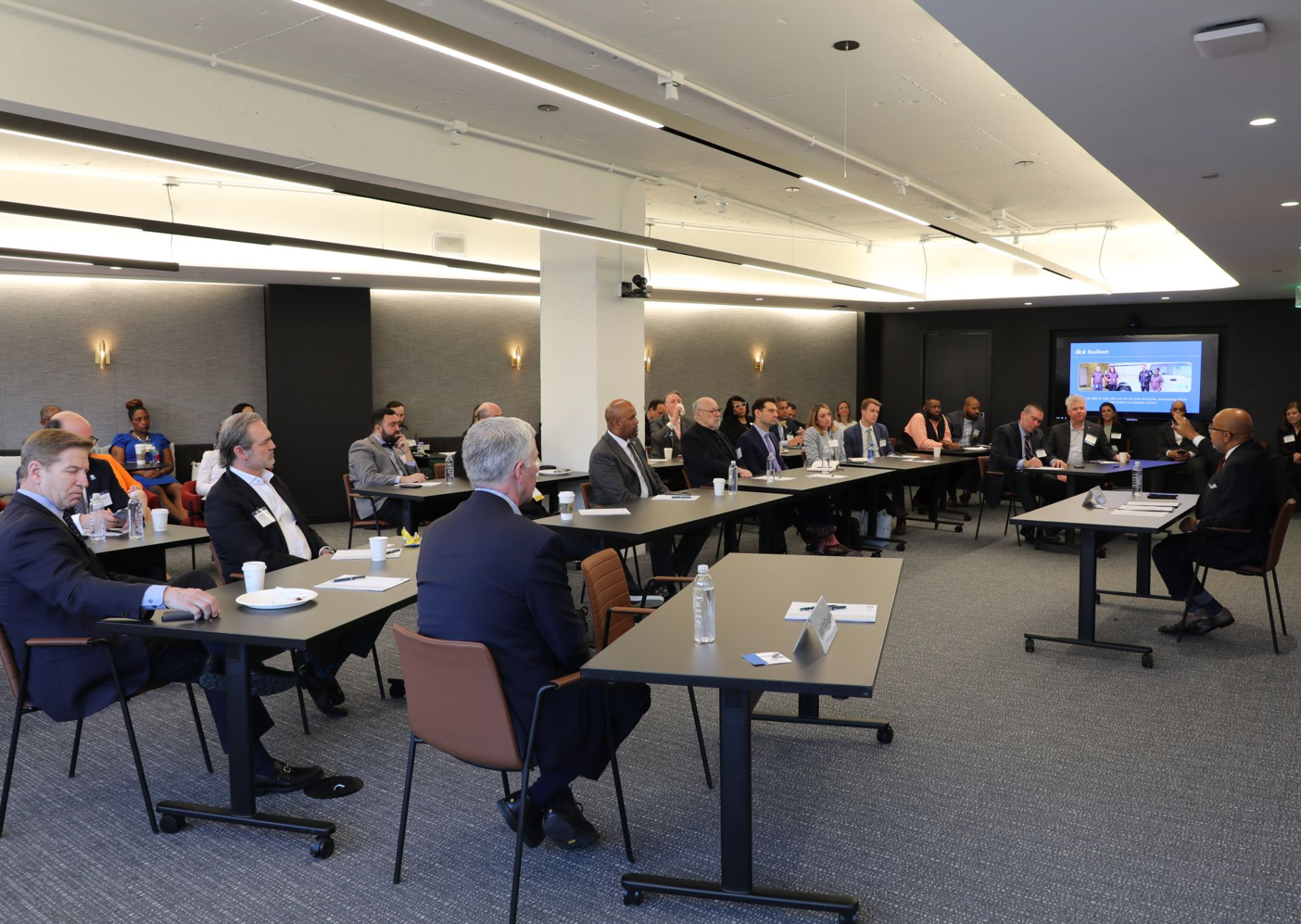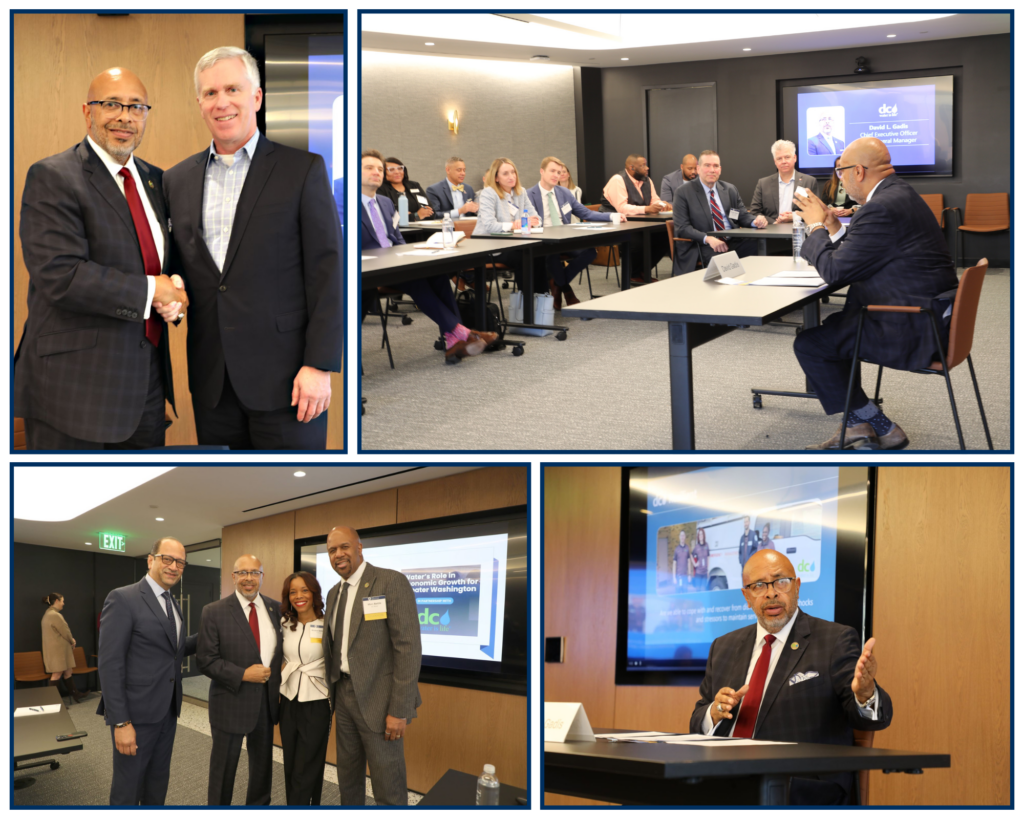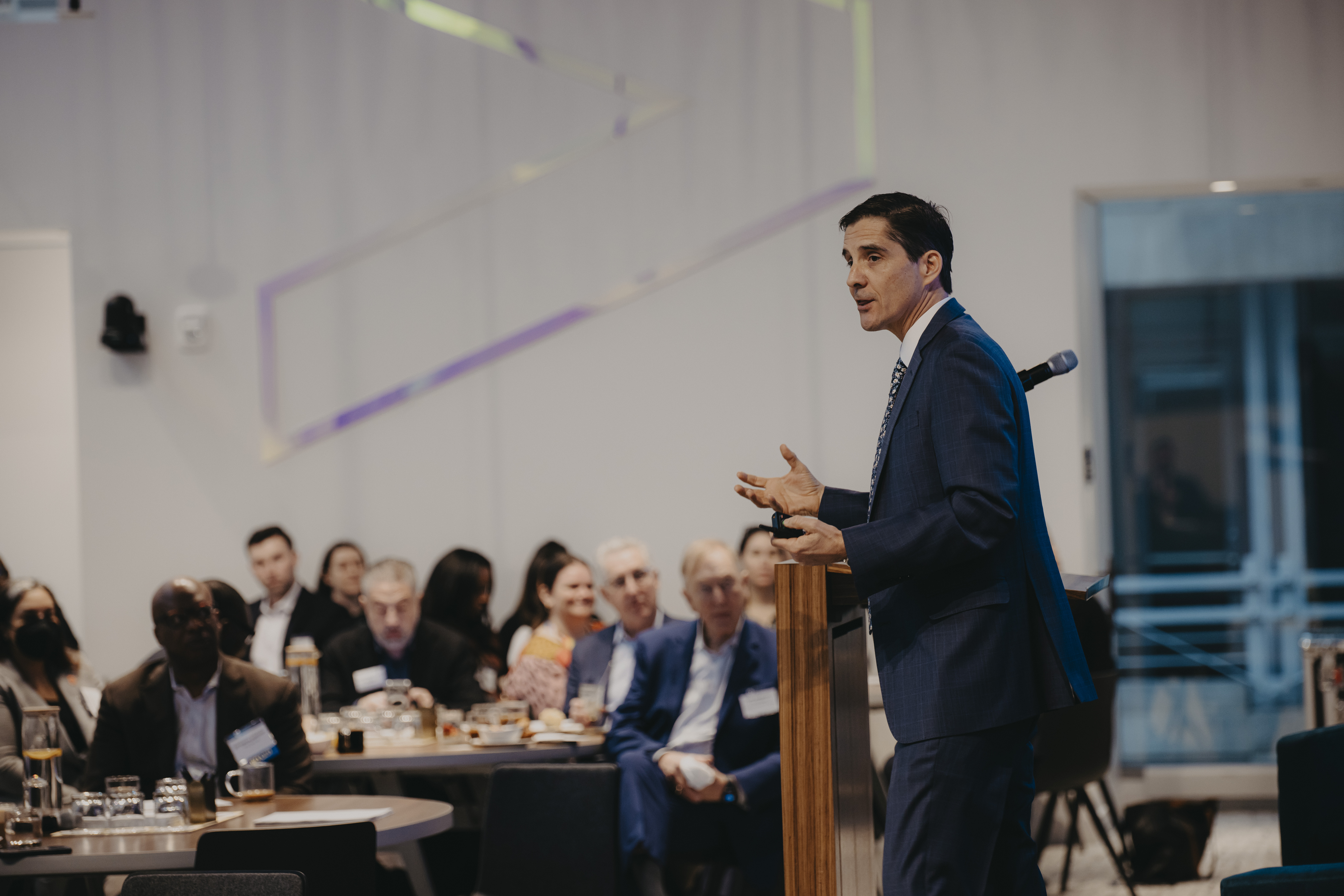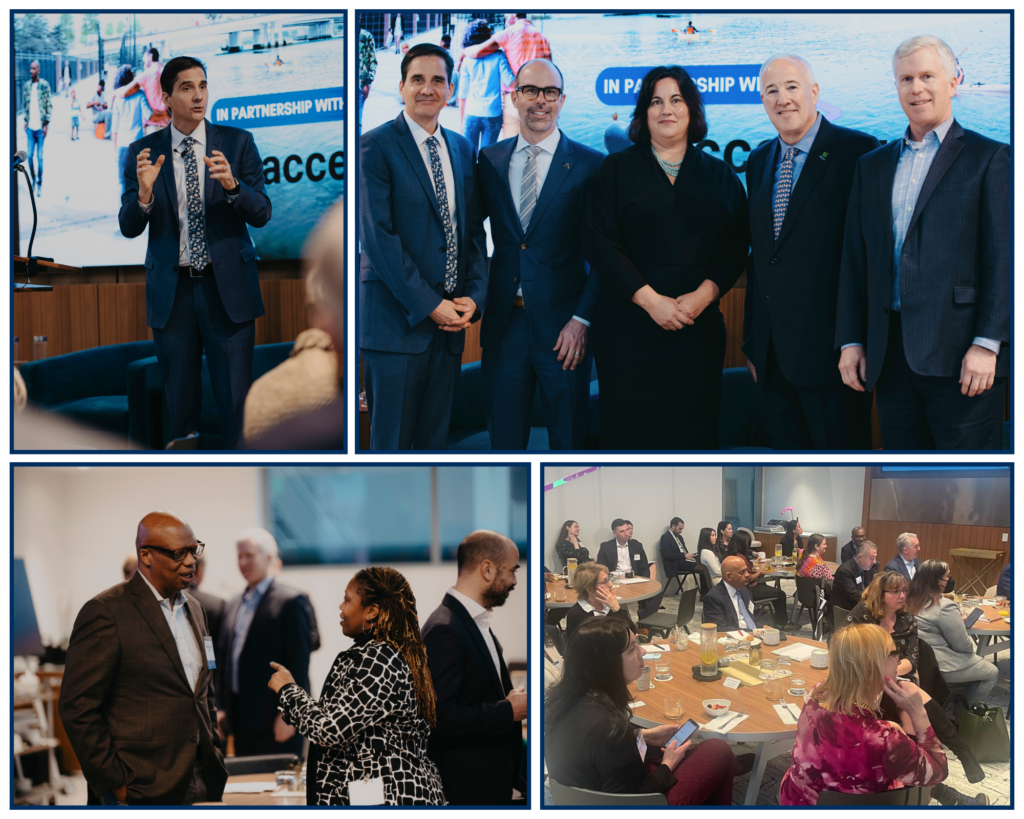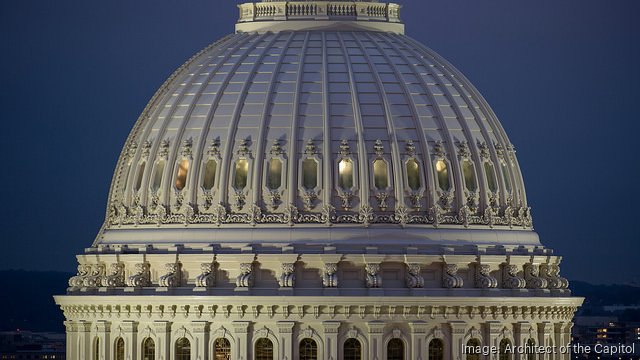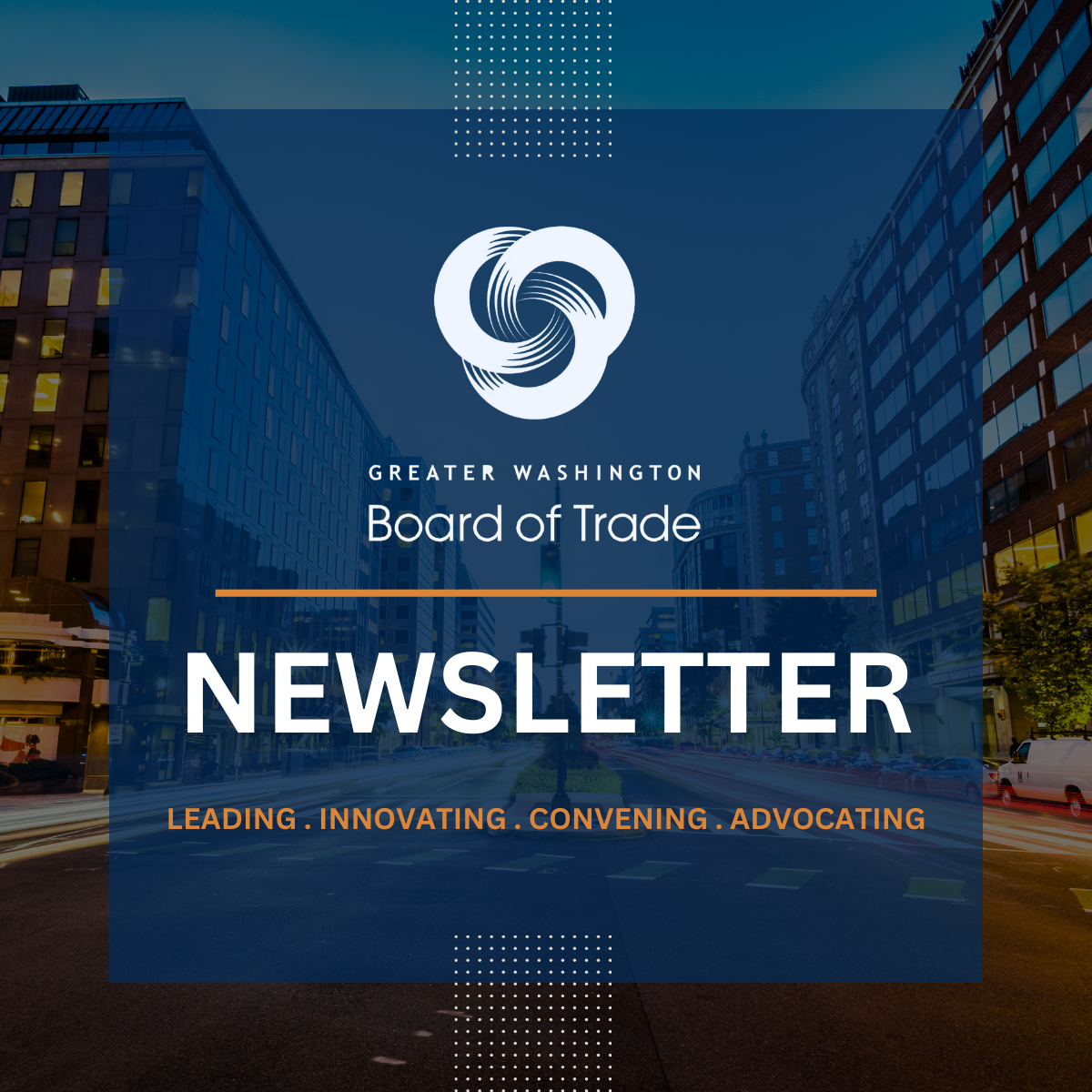About this Testimony: Greater Washington Board of Trade President & CEO Jack McDougle submitted testimony to the District of Columbia Council’s Committee on Business and Economic Development for the hearing titled Building a Resilient Economy: Strategies for the District’s Future Growth, Investment, and Stability. This testimony to D.C. Council highlights the critical issue of building a resilient economy for the District of Columbia, especially as the federal government continues to transform and shrink across the region.
Thank you for the opportunity to provide this testimony on the critical issue of building a resilient economy for the District of Columbia. As the federal government continues to transform and shrink across the region, we face a defining moment—one that demands bold action and a strategic reimagining of our economic future. We recognize and appreciate the significant efforts already underway and the progress that has been made, but there is still more to do to ensure long-term economic stability and growth.
The District’s economic stability has long been anchored by the presence and spending power of the federal government. However, that model is no longer sustainable. Federal employment is shrinking, office vacancies are climbing, and contracting dollars are declining. While this presents clear challenges, it also creates a pivotal opportunity to reimagine our economic foundation—one that is more innovative, diverse, and competitive, positioning the District and our region as a leader in the 21st-century global economy.
This shift demands more than incremental adjustments—it requires a bold economic roadmap, strategic investments in key industries, and a unified regional approach to ensure long-term growth and stability. At the same time, it’s important to recognize that the federal government will always be a foundational part of our economy. The goal is not to sever ties with the federal sector—but to better leverage a transformed federal presence while expanding non-government private sector leadership to build a more balanced and resilient economy.
Building a Bold Economic Roadmap
The District must continue to build and enhance their comprehensive Economic Roadmap that sets clear goals, leverages strategic assets, improves the business environment, reduces reliance on federal employment and spending while maximizing the benefits of a federal presence. This roadmap should focus on:
- Reconfiguring Federal Assets: Continue efforts to reconfigure underutilized federal buildings and land, expanding opportunities for mixed-use developments, innovation hubs, and business incubators.
- Encouraging Private Sector Investment: Continue developing and refining targeted incentives to attract and retain private sector businesses in high-growth industries. We must reduce barriers to entry for businesses and make the District a more attractive place to launch and grow a business.
- Leveraging Federal Transitions: Capitalize on the shift toward remote work and federal downsizing by encouraging private sector expansion into vacated spaces and enhance tax incentives for companies to establish headquarters and operations in the District.
- Strengthening Federal-Private Collaboration: Establish more formal partnerships between federal agencies, local government, and the business community to promote knowledge sharing, contracting opportunities, and innovation.
We cannot allow federal retrenchment to limit our future. Instead, we must seize this moment to redefine our economic identity—moving from a government-dependent city to a dynamic, innovation-driven economy.
Fueling Innovation and Entrepreneurship
Innovation and entrepreneurship must be at the heart of our economic strategy. To make Greater Washington a national leader in innovation, we need to:
- Expand the Startup Ecosystem: Create new incubators, co-working spaces, and maker hubs to support early-stage businesses.
- Increase Access to Capital: Encourage more public-private funds to provide seed and growth-stage capital.
- Support Full Life-Cycle Growth: Ensure that startups have the resources not only to launch but to scale and thrive—through mentorship, market access, capital and strategic partnerships.
- Leverage Universities and Research Institutions: Foster stronger connections between the District’s and region’s universities and the business community to accelerate tech transfer and commercialization.
- Align Federal and Private Innovation: Encourage greater collaboration between federal research and private sector innovation. Federal labs, data, and research capacity are among our greatest underutilized assets—linking them with private sector investment could unlock tremendous growth potential.
Greater Washington has the talent, infrastructure, and intellectual capital to lead the nation in innovation—we need to unlock that potential with targeted, sustained investment and the right operating environment.
Diversifying and Strengthening the Economic Base
A resilient economy is a diversified economy. To build long-term economic strength, the District must focus on accelerating growth in high-potential sectors that are less dependent on federal activity while harnessing federal resources to strengthen those industries:
- Technology: Expand support for software development, data analytics, artificial intelligence, and fintech companies. Federal data and research capabilities present a unique opportunity to fuel growth in these areas.
- Life Sciences: Strengthen the District’s position as a biotech and health innovation hub through research incentives and partnerships with leading medical institutions and eventually federal research agencies.
- Clean Energy: Build on the District’s climate commitments by expanding renewable energy infrastructure and incentivizing clean-tech development.
- Cybersecurity: Leverage our proximity to federal agencies and defense contractors to position the District as a leader in cybersecurity and data protection. Establishing a national cybersecurity innovation hub in the District could create thousands of high-paying jobs and drive private sector investment.
By targeting these sectors and others such as hospitality, education, and media, the District can create a more balanced and competitive economy that drives sustainable growth and job creation—while strategically using federal resources to strengthen these industries.
Empowering a Future-Ready Workforce
Economic resilience depends on a workforce that is prepared to meet the needs of a changing economy. We must align our education and workforce development systems with the demands of growth industries:
- Expand Education-to-Employment Pathways: Strengthen partnerships between high schools, community colleges, universities, and employers to create clear pathways into high-demand fields.
- Support Federal-to-Private Sector Transitions: Expand retraining programs to help former federal employees transition into private sector roles in tech, healthcare, and other high-growth industries. The skills and experience of the federal workforce represent a significant asset that we cannot afford to waste.
- Invest in Skills Development: Increase access to apprenticeships, vocational training, and reskilling programs, with a focus on digital literacy, technical skills, and new economy jobs.
- Promote Economic Inclusion: Ensure that economic growth benefits all communities by removing barriers to employment and investing in workforce training for underrepresented groups. Don’t limit employment opportunities only to DC.
An adaptable, skilled workforce will be the foundation of a more competitive and resilient District economy.
Unifying Regional Efforts for Greater Impact
Economic challenges and opportunities don’t stop at the District’s borders. To maximize growth, we must strengthen regional collaboration across government, business, and academia:
- Support a Regional Economic Development Strategy: Align economic development goals with Maryland and Virginia to create a unified strategy for attracting investment and growing key industries.
- Enhance Transportation and Infrastructure Connectivity: Improve transit options and regional infrastructure to increase mobility and economic integration.
- Coordinate Business Attraction and Retention: Work with regional partners to create competitive incentives and reduce duplicative efforts.
- Leverage Federal and Regional Assets: Develop a coordinated plan to maximize the economic potential of federal properties and regional research institutions.
A unified regional approach will give the District a competitive edge in the global marketplace and drive collective economic growth.
Conclusion
The shrinking federal footprint is just the start of District’s economic future—it is a defining opportunity to build a more dynamic, innovative, and resilient economy. By developing a bold economic roadmap, creating a more supportive business environment, fueling innovation, diversifying our economic base, empowering a future-ready workforce, and strengthening regional collaboration, we can position the District not only to withstand future economic shocks but to emerge stronger and more competitive.
But this isn’t about replacing the federal government—it’s about strategically using the strength of the federal presence to fuel private sector growth and innovation. We need to transition from a government-dependent city to a government-enhanced city—where federal resources, workforce expertise, and strategic positioning are leveraged to build a broader, more dynamic economic base.
The time for action is now. The decisions we make today will determine whether the District remains tethered to the past—or becomes a global leader in economic resilience and innovation.
Thank you for the opportunity to testify.
